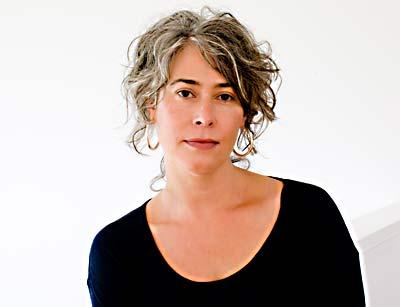Your Daughter, Yourself

Joyce McFadden, an author and psychoanalyst who lives in East Hampton and will give a book talk at East Hampton High School on Wednesday, did not set out to write a book about young women and sexuality.
But a series of 1,300 questionnaires spanning women’s subjects from relationships to sexual abuse to marriage and children, answered by women ages 18 to 105, led to “Your Daughter’s Bedroom: Insights for Raising Confident Women.”
Ms. McFadden’s Web site, womensrealities.com, offers women a chance to answer a myriad of questions anonymously. “I find that a lot of women feel shameful about totally normal responses in their lives,” she said. When asked about what in particular, she said, “Feeling angry at a girlfriend, for example. A woman wondered, ‘Does that make me a bitch?’ Or losing desire for sex.”
She started the survey, and the book, because “I wanted to find a way for women to reduce their level of shame,” she said. “I wanted to create a reference book, the emotional and psychological companion for ‘Our Bodies, Ourselves.’ ”
According to Ms. McFadden, sexuality isn’t just about sex: It defines who we are, and affects our identity.
When it came time to narrow down the subject matter to book form, “I let the women decide,” she said. The three subjects chosen for a book for teenaged girls were: menstruation, relationship with mother, and the “M” word — masturbation.
In her book, Ms. McFadden refers to an episode of “Oprah” featuring Dr. Laura Berman and Ali Wentworth, also an East Hampton resident: “In particular, Berman spoke about the benefits of teaching our daughters about masturbation so that they could have a sense of ownership over their sexual response cycle. Many of the women in the audience literally stammered with discomfort at the thought of how to take this professional recommendation. Some women couldn’t say the word at all . . . It was like the sexual equivalent of saying ‘Voldemort.’ ”
That may be true, but surely getting your period is something that a girl learns about from her mother? Not according to Ms. McFadden, who shared a startling statistic that over 50 percent of women under 30 do not learn about menstruation from their mothers.
“Women intellectually know they should talk to their daughters about these things,” she said. “They’ll leave books around, but not speak directly about their own experience. You know what my mother said to me? ‘Don’t get pregnant.’ That’s it.” She refers to “the pawning off of our daughters’ sex ed” onto the school system.
“My parents handled it all so poorly,” reads a quote from Ms. McFadden’s book from an anonymous participant in the survey. “It’s really, really shocking. I was completely mortified of my body — for most of my life — and it totally started me on a path of disconnection with my sexuality.”
One of the problems is “we wait until they’re teenagers to talk to them about this stuff, when they want nothing to do with us.” Discussing a subject like sexuality can be difficult enough with your mother, or with your daughter, if you come from a place of shame, said Ms. McFadden, and teenage rejection compounds the problem and continues the cycle of embarrassment and shame.
“I wish my mother had been more comfortable with her body and had been able to instill that in me,” reads another quote. And still another: “I wish it had been taught to me in a way that made me excited and proud rather than anxious.”
Ms. McFadden suggests teaching about sexuality in stages. Children of elementary-school age are not too young to start learning. “You don’t not teach your daughter the letter ‘A’ because you’re scared she’ll read ‘Mein Kampf,’ ” she said. “But you don’t teach your daughter about her vulva because you’re scared she’ll be a slut.”
About “Your Daughter’s Bedroom,” Ms. McFadden said she is not a fan of the title or the cover art, which is pink and depicts a pink bra with bows on it substituting for the letter “B.”
“I’m mortified by the cover art,” she said, and spoke of “silent weeping in the car.”
“It’s misleading at best . . . and creepy at worst.”
The book is about sexuality, “which does not just take place in the bedroom. It grounds you in a sense of yourself. A skewed identity cripples our relationships — we spill all kinds of crap onto our daughters about hating our bodies, but don’t explain to them how our bodies work. If we have a warped sense of our sexuality, it doesn’t just affect us in the bedroom, it affects us in algebra class.”
She maintains that “it’s not the confident girls out there, who feel ownership of their bodies, who are cyber-sexting and posting naked pictures of themselves.” Ms. McFadden is hoping her book will help to change that, assisting mothers in making their daughters feel beautiful and normal.
“I want to help raise the next generation of women to not feel shame about being human,” she said.
The Wednesday event, the first in a series of library talks hosts by East Hampton High School, will be held at 6:30 p.m., and is free and open to the public. Ms. McFadden encourages parents who have daughters of any age, from kindergarten to adult, to attend.
